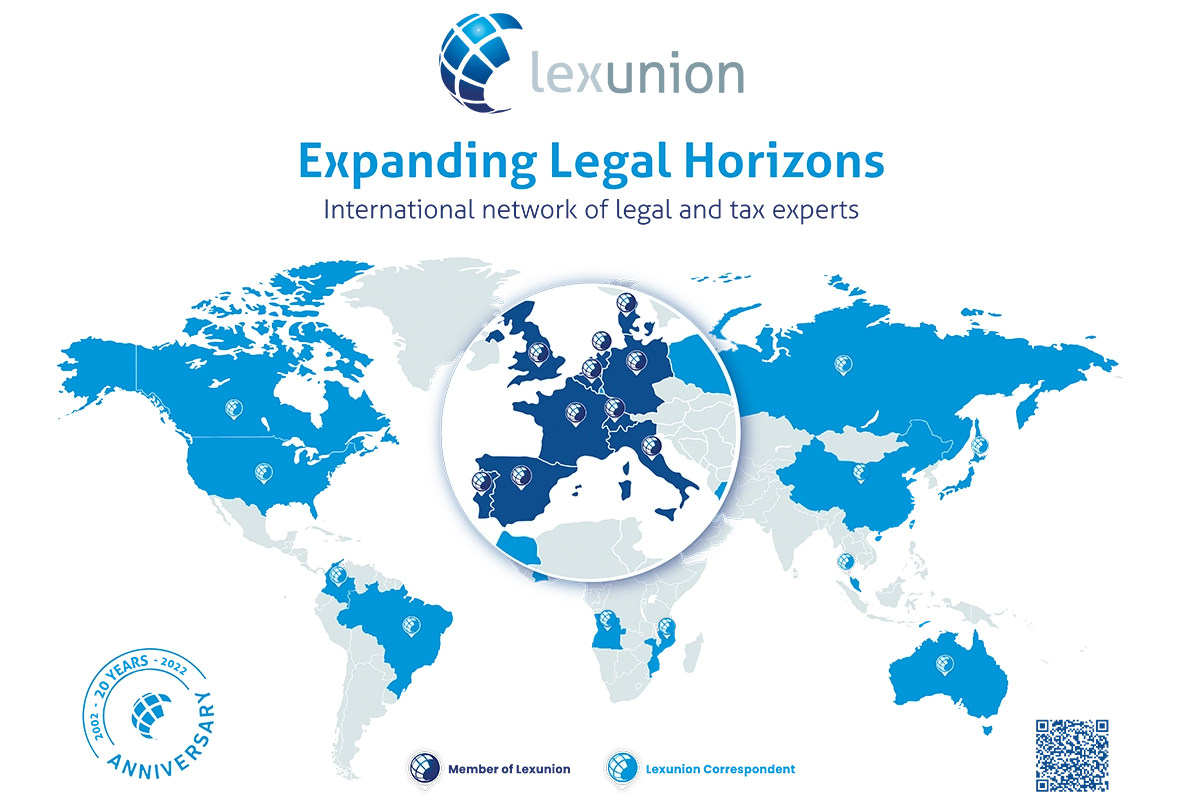1| PERSONAL TAX INCOME
In Portugal, individuals are taxed on their income under Personal Income Tax (“PIT”).
Individuals who qualify as tax residents will be obliged to disclose their worldwide income and PIT will be calculated on those amounts. Conversely, for individuals who are non-tax residents in Portugal, PIT will only be levied on their Portuguese sourced income.
Bearing this in mind, the following table presents the types of income to be considered under PIT.
| Category A | Employment income |
| Category B | Self-Employment income |
| Category E | Investment income |
| Category F | Rental income |
| Category G | Capital gains |
| Category H | Pension income |
Accordingly, it is important to distinguish that income obtained by a Portuguese tax resident under Category A (employment income), B (selfemployment income), G (immovable property capital gains) and H (pension income) is taxed at the following general and progressive tax rates 1:
| Bracket | Tax rate (%) | Deductible Amount |
|
|---|---|---|---|
| €8,059 | 13.00 | ||
| €8,059 | €12,160 | 16.50 | €282.07 |
| €12,160 | €17,233 | 22.00 | €950.91 |
| €17,233 | €22,306 | 25.00 | €1.467,91 |
| €22,306 | €28.400 | 32,00 | €3.029,38 |
| €28.400 | €41.629 | 35,50 | €4.023,14 |
| €41.629 | €44.987 | 43,50 | €7.353,76 |
| €44.987 | €83.696 | 45,00 | €8.028,38 |
| €83.696 | 48.00 | €10.539,00 | |
Additionally, a solidarity surcharge is applied to collectable income over €80,000, as follows 2:
| Taxable income | Rate |
|---|---|
| FROM €80,000 TO €250,000 | 2.5% |
| OVER €250,000 | 5% |
1 Article 68 of the PIT Code
2 Article 68-A of the PIT Code
- Income from categories E (investment income), F (rental income not from housing rental) and G (movable property capital gains) are liable to PIT at a flat tax rate of 28% 1. Notwithstanding, the rental income (category E) derived from housing rental is liable to a 25% flat tax rate 2.
- Nevertheless, income derived from the above-mentioned categories may be taxed at the general and progressive tax rates if the individual opts for this in their annual tax return.
- It should be noted that certain types of income derived from blacklisted jurisdictions will be liable to an aggravated tax rate of 35%.
I. NON-HABITUAL RESIDENT SPECIAL TAX REGIME
- Individuals who qualify as NHR are entitled to more advantageous tax rules on specific types of income and depending on their source.
- In general, the NHR regime allows the application of the exemption method as a rule in order to avoid double taxation on the same type of income, insofar as the required conditions are met.
- Hence, foreign-sourced income may, in principle, benefit from a tax exemption in Portugal 3, except in the case of foreign-sourced pension income, which is subject to a reduced tax rate of 10% 4.
- Moreover, income resulting from the exercise of a professional activity, either under an employment agreement or as an independent worker, may also benefit from a reduced tax rate of 20%, insofar as such activity may be deemed high-added value 5.
- It is important to note that the NHR regime terminated on 31 December, 2023. Nevertheless, it was still possible to apply for the NHR in 2024, under specific foreseen circumstances, in which case the regime continuous to be valid for a 10-year period.
1 Article 72 (1) (d), (e) and (c) of the PIT Code
2 Article 72 (2) of the PIT Code
3 Article 81 (4) and (5) (in effect until December 31 of 2023)
4 Article 72 (12) (in effect until December 31 of 2023)
5 Article 72 (10) (in effect until December 31 of 2023)
1.1 REAL ESTATE AND INHERITANCE TAXES
- In Portugal, if an individual acquires a real estate property, the following taxes are due: Municipal Property Tax (“IMI”); Municipal Property Transfer Tax (“IMT”) and Stamp Duty.
- Moreover, upon the sale of the property, PIT will also be ascertained over the capital gain arising from the difference between the acquisition price and the sale price (after deduction of the eligible expenses).
I. MUNICIPAL PROPERTY TRANSFER TAX (“IMT”) AND STAMP DUTY (“IS”)
- Upon the acquisition of real estate in Portugal, an individual will be liable for IMT and IS.
- IMT will be calculated based on either the value of the property for tax purposes or the amount declared at the time of the purchase, depending on which one is higher, considering the following rates:
| Amount under which IMT is levied (€) | Percentage rates (%) | |
|---|---|---|
| Marginal | Median | |
| Up to €104.261 | 0 | 0 |
| From €104.261 to €142.618 | 2 | 0.5379 |
| From €142.618 to €194.458 | 5 | 1.7274 |
| From €194.458 to €324.058 | 7 | 3.8361 |
| From €324.058 to €648.022 | 8 | |
| From €648.022 to €1.128.287 | 6 (fixed tax rate) | |
| Over €1.128.287 | 7.5 (fixed tax rate) | |
| Amount under which IMT is levied (€) | Percentage rates (%) | |
|---|---|---|
| Marginal | Median | |
| Up to €104.261 | 1 | 1 |
| From €104.261 to €142.618 | 2 | 1.2689 |
| From €142.618 to €194.458 | 5 | 2.2636 |
| From €194.458 to €324.058 | 7 | 4.1578 |
| From €324.058 to €621.501 | 8 | |
| From €621.501 to €1.128.287 | 6 (fixed tax rate) | |
| Over €1.128.287 | 7.5 (fixed tax rate) | |
We would like to stress that different rates are applicable in the following scenarios:
- a) If the individual acquires a Rural Property, a flat tax rate of 5% will be applicable [article 17 (1) (d) of the IMT Code];
- b) If the individual acquires Real Estate (i.e., without residency purposes), a flat tax rate of 6.5% will be applicable [article 17 (1) (e) of the IMT Code].
II. MUNICIPAL PROPERTY TAX (“IMI”)
- Each municipality has competence to set its own rate, which may vary between 0.3% and 0.45% for urban real estate.
[article 112 (1) (c) of the IMI Code]. - The applicable tax rate for rural properties is 0.8%.
[article 112 (1) (a) of the IMI Code]. - For real estate acquired by entities/individuals located in blacklisted jurisdictions, an aggravated tax rate of 7.5% will apply.
[article 112 (4) of the IMI Code].
III. ADDITIONAL MUNICIPAL PROPERTY TAX (“AIMI”)
- An additional tax is also levied on eligible urban real estate property located in Portuguese territory, since the applicable rules vary depending on whether the property is held by an individual or a corporate entity.
- Real estate held by an individual:
• A 0.7% rate shall be applicable to the sum of the property value for tax purposes if it is higher than €600,000 (or €1,200,000 if married taxpayers or taxpayers under a civil union opt for joint taxation) 1
• A marginal rate of 1% is added to the above amount if it is higher than €1,000,000 and equal to or less than €2,000,000 (in the case of joint taxation, said marginal rate shall be levied for a global value over €2,000,000 and equal to or less than €4,000,000) 2 - Real estate held by a corporate entity:
• A 0.4% rate shall be applicable to the sum of the property value for tax purposes
• Should the entity’s tax residency be located in a jurisdiction deemed to be a tax haven for Portugal, then an aggravated tax rate of 7.5% will be applicable to the above sum 3
IV. INHERITANCE AND GIFT TAX (STAMP DUTY)
- Portugal does not have any inheritance or gift tax, nevertheless Stamp Duty may be applicable under certain situations, with its payment being the responsibility of the beneficiary.
- Specifically, the onerous acquisition of real estate in Portugal is subject to Stamp Duty at the rate of 0.8% levied on the agreed price. This same tax rate of 0.8% 4 is applicable if the real estate is gifted, with the addition of a further 10% 5.
- If the real estate is transferred through an inheritance, then only the 10% rate is applicable, which is the normal rate applicable to the free transfer of goods (gifts) subject to Stamp Duty.
- Nevertheless, it should be highlighted that a subjective tax exemption of the above 10% rate is legally foreseen and applicable between spouses/civil union partners, descendants and ascendents 6.
- Hence, when a property right over real estate located in Portugal is transferred as a gift (between spouses/civil union partners, descendants and ascendents), the above-mentioned subjective exemption shall apply, regardless, and the 0.8% rate will still be enforced, unless the transfer is by inheritance (since in such a scenario the 0.8% rate is not applicable).
1 Article 135-F (1) of the IMI Code
2 Article 135-F (2) of the IMI Code
3 Article 135-F (5) of the IMI Code
4 1.1 of the Stamp Duty General Table
5 1.2 of the Stamp Duty General Table
6 Article 6 (1) (e) of the Stamp Duty Code
2| REAL ESTATE CAPITAL GAINS UNDER PIT
- Under Portuguese PIT, if a Portuguese tax resident derives a capital gain from selling immovable property, such capital gain will be taxed under the general and progressive rates (see table in section A. PIT). However, in most cases, only 50% of the capital gain will be taxable 1.
- Additionally, it should be noted that if the property was acquired more than 24 months before the sale, a coefficient of monetary devaluation should be applied to the acquisition value for tax purposes 2.
- The acquisition value will also be incremented by all the demonstrably incurred costs of increasing the value of the property over the past 12 years, and the necessary and effectively incurred expenses inherent in the acquisition and sale of the property 3.
- The formula for the calculation of real estate capital gains is as follows:
SA – (AA*CMD + DE) = Capital Gain/Loss
SA = Sale amount
AA = Acquisition amount
CMD = Coefficient of monetary devaluation
DE = Deductible Expenses - A final note on a specific case in which the real estate is acquired encumbered with a usufruct right from a third party. In such situations the calculation of the acquisition amount depends on the age (at the acquisition date) of the person entitled to the usufruct right – the older the usufructuary, the smaller the percentage to deduct from the value of the property 4. In a nutshell, this means that the acquisition amount must consider the burden of the usufruct in order to reach the actual value of the bare property “nua propriedade” acquired. If the usufruct right holder dies before the sale date (or if the usufruct is extinguished due to other reasons) and the property consolidates, the corresponding percentage has to be applied to the tax value of the property at the date of decease of the usufruct right holder in order to reach the “complete” acquisition amount of the now consolidated property (unencumbered).











